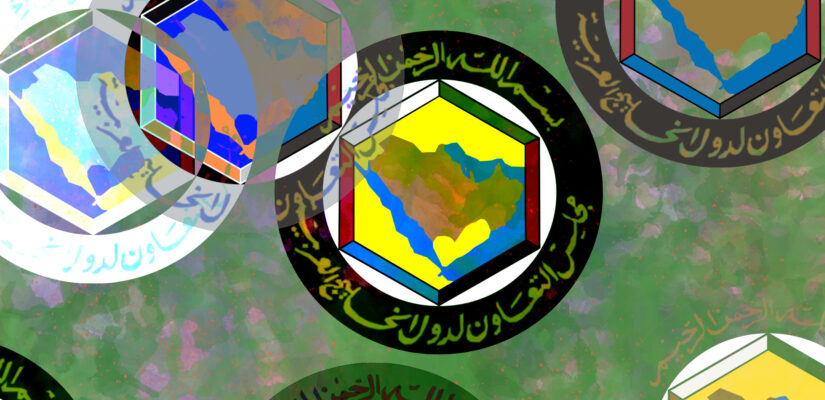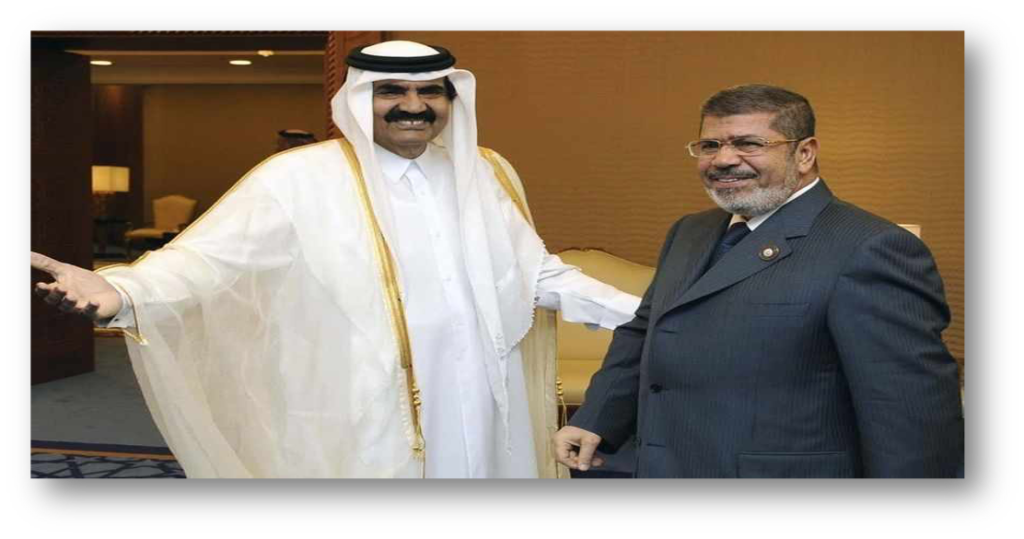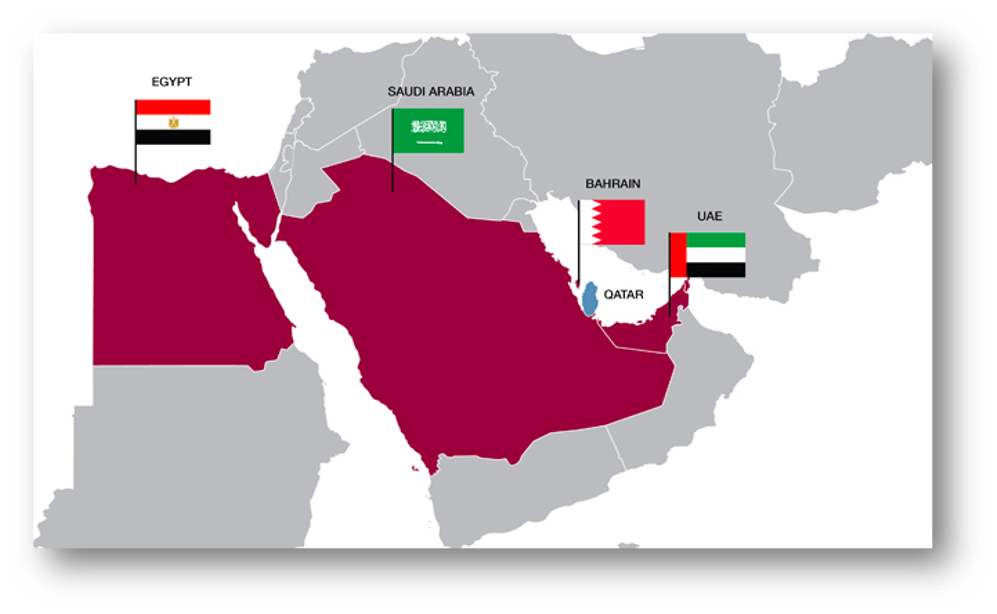
Gulf Reconciliation and Geopolitical Challenges
AYOUB EL HASNAOUY
INSIGHT #11 • APRIL 2021
In a Middle East fragmented by wars and political tensions, a glimmer of hope arose on January 5th, 2021 when the Qatari Emir, Tamim bin Hamad al-Thani, attended the Gulf Cooperation Council summit after more than three years of absence. This visit ended a period of rift between the pro-Saudi Arabian camp (Egypt, the United Arab Emirates, and Bahrain) and the black sheep of the region, Qatar, which the former had accused of supporting Islamist groups, being too pro-Iranian, and sowing disorder in the region. Allegations that the rich and ambitious gas Emirate has always denied and denounced the “embargo” of which it claims to be a victim.
At the opening of the summit hosted by the Saudi city of Al-ULA, the six nations that make up the Gulf Cooperation Council signed an agreement “of solidarity and stability” in order to unify their forces and promote peace in the region. This agreement appears to be a positive step for all, from which additional developments could follow. One thing is for sure, it will have a major impact on regional dynamics because the climate of alliances in the region was strongly affected by the Gulf countries’ crisis. With the overwhelming regional pressure, it would be virtually impossible for Qatar to maintain its alliances with Iran and Turkey, especially given Saudi Arabia’s rather hostile stance vis-à-vis the former, which the Saudi crown prince Mohammed Ben Salman did not shy away from emphasizing during his opening speech.
In this vein, this article seeks to investigate the motives as to why Saudi Arabia ended the blockade against Qatar. Especially after Joe Biden’s statements showing his willingness to bring the United States back in the Vienna Nuclear Deal of 2015. Moreover, this contribution aims to show how Gulf countries will deal with the geopolitical dynamics at the origin of the crisis, in particular the Qatari-Iranian alliance. The question therefore arises as to whether Qatar will change its pro-Iranian stance or continue to have an attitude that irritates its neighbors?
A look back at the Gulf Crisis of 2017
To understand the ongoing situation in the Gulf region, it is necessary to consider the various elements at the genesis of this crisis. For this reason, we are going to analyze the factors that led to the break with Qatar, especially after the geopolitical and social shifts in the MENA region after 2011.
The outbreak of the Arab Spring contributed to the resurgence of tensions and rivalries between Qatar and Saudi Arabia, due to the divergence of internal security concerns which resulted in very different policy responses. While Saudi Arabia and the United Arab Emirates focused on the existential threat represented by the Muslim Brotherhood’s ideology –which recognizes the legitimacy of an Islamic state built on elections as rivalling the Wahhabi, a doctrine that advocates a strict allegiance to the holder of legitimate authority (‘adam al-khuruj ‘ala wali alamr)– Qatar did not hesitate to support former Egyptian President Mohamed Morsi and went even as far as offering financial support and using its soft power (its active diplomacy and giant media network Al-Jazeera) to assist the fifth president of Egypt.

An archived picture of Egyptian former president Mohamed Morsi and Qatar’s Emir Sheikh Hamad bin Khalifa al-Thani on 23 March 2013. Photo by REUTERS/Egyptian Presidency.
When Morsi was removed from office in the summer of 2013 by General Abdel Fattah el-Sisi, Qatar still continued its support to the Muslim Brotherhood and refused to adhere to the policy of “benching” introduced by its neighbors. As a consequence, Riyadh, Abu Dhabi, and Manama recalled their ambassadors to Doha shortly after and criticized Qatar over several aspects of its foreign policy, directing particular attention on its political and financial support to the Muslim Brotherhood.[1]
These tensions have inevitably spilled over into Libya where a number of those states have been involved in a proxy war. The UAE and Egypt support the Tobruk government headed by Marshal Haftar, while Qatar and Turkey officially support the Government of National Accord in Tripoli, dominated by a strong religious component issued from the Muslim Brotherhood.[2]
However, since the accession to the throne of King Salman in 2015, the fight against the Muslim Brotherhood seems to be no longer a priority for the Saudi Kingdom. On the contrary, Iran, against which Saudi Arabia has for a long time been waging a regional cold war, is at the heart of all its concerns. This Saudi vision is shared by the United Arab Emirates and Bahrain. Since their independence, the Emirates have had a territorial dispute with Iran over three islands in the Persian Gulf “Abu Musa and the two Tunb Islands”. As for Bahrain, which has a majority Shiite population and a Sunni royal family, it considers Iran as a permanent threat that could challenge the legitimacy of the regime and the stability of the Kingdom.[3] On the other side of the question, Emir Tamim of Qatar has always called for a Gulf-Iran dialogue to ease tensions and achieve a normalization of relations between the countries of the Persian Gulf. A stance rejected by Riyadh, which wishes to isolate Iran and reduce its political and economic influence. Hence, it is safe to say that the diplomatic rift of 2017 was directly related to Qatar’s ambiguous policy towards Iran and its failure of granting a difficult strategic balance between the GCC’s foreign policy priorities and its national interest.
During his speech at the Islamic American summit held between May 20th and 22nd ,2017 in Riyadh, King Salman underlined how Iran is responsible of spreading disorder in the region, especially considering the unprecedent level of influence it holds in Iraq, Syria, South Lebanon, and Yemen.
On May 23rd, 2017, Qatar announced that its news agency QNA had been hacked by an “unknown entity” and circulated a fake press release attributed to Amir Tamim bin Hamad al-Thani on delicate regional subjects. The comments affirmed the good relationship between Qatar and Hamas (whose former leader Khaled Mechaal lives in Qatar) and the strategic relations with other countries and organizations, including Iran and the Muslim Brotherhood. However, the statement also contained negative comments on relations between Qatar and its neighbors.[4]

The declarations attributed to the Amir of Qatar, were in dire contrast with the conventional foreign relations of the Gulf Cooperation Council (GCC), which has a relative contempt for these organizations and countries. Following these statements, the Gulf monarchies UAE, Saudi Arabia, Bahrain and their Egyptian ally, seized the opportunity to banish their (undisciplined) neighbor. The first undertaken action was closing Al Jazeera’s offices.[5]
On June 5th, 2017, Saudi Arabia, the United Arab Emirates, Bahrain, and Egypt announced the severance of diplomatic ties with Qatar. In addition, the quartet announced the suspension of all land port, air space, and sea routes with Qatar which isolated the latter and blocked its imports of goods.
Qatar, for its part, denounced, through a statement from its Foreign Minister the “unjustified” and “unfounded” measures. According to the latter, they have a “clear objective: to place the State [of Qatar] under trusteeship, which marks a violation of its sovereignty.”[6]
To put an end to the embargo, the four countries sent a list of thirteen requests that Qatar must respect and abide by. These demands entailed the closure of a Turkish military base in Qatar, the severance of diplomatic ties with Iran and cutting off all ties with any “terrorist organization”, specifically the Muslim Brotherhood, the Daesh militant group, Al Qaida, and Lebanon’s Hezbollah. [7]
Over these years, and despite the attempts for the reconciliation led in particular by Kuwait and the United States, Qatar always refused to comply with these demands and the four countries have consequently remained firm in their positions. But if the geopolitical interests of the two blocks remain considerably divergent, why has Saudi Arabia decided to put an end to the embargo on Qatar?
Why Saudi Arabia have chosen this historical moment?
Following the signature of an agreement sealing the reconciliation between Doha and the other countries of the Gulf Cooperation Council (GCC), Saudi Arabia announced the reopening of its borders with Qatar and its intention to establish a new embassy in Doha. The end of the air and sea blockade imposed on Doha would have been obtained in exchange for Qatar’s commitment to withdraw the complaints lodged before international bodies (WTO, ICJ, International Civil Aviation Organization) and put an end to the mediatic propaganda.[8]
Yet, Qatar still refuses to act to the Quartet’s demands and to cut diplomatic relations with Iran, end its support for Hezbollah and the Muslim Brotherhood. Although these main points of friction remain, today, Riyadh prefers today to avoid confrontation on sensitive issues and focus on the concrete aspects of reconciliation.
According to some observers, the main driving forces behind this development is the failure of Riyadh’s offensive strategy in the region and the victory of President Joe Biden at the US 2020 elections. The first element is related to the strong method applied by Crown Prince Mohammed ben Salman in his foreign policy, which is reflected in the disastrous humanitarian results of the Yemen War, the repression of internal and external opponents as well as the international scandal caused by the assassination of Jamal Khashoggi.
All these factors have weakened Saudi Arabia’s position and reduced its influence in the region in favor of other countries such as Turkey. As a result, Riyadh has become even more isolated in its battle against Iran. The second element responsible for such developments, as stated above, can be attributed to the victory of President Joe Biden. During his campaign, Biden made it clear that, if elected, he would re-evaluate the relationship with Saudi Arabia and would be more decisive than his Republican opponent on the issues elating to human rights and the Yemeni conflict.[9] Furthermore, the new administration is more favorable to reopen channels of communication with Iran and discuss a return to the 2015 Nuclear Deal.[10] Hence, Saudi Arabia has readjusted its strategy accordingly by seeking to offer a token of confidence to the 46th US President and show that it can take initiative to promote stability in the region, and try, at the same time, to bring Doha closer to its tough stance against Iran. Moreover, Mohammed ben Salman reiterated that the objective of Al-Ula summit was to involve parties and exchange ideas on the “challenges” posed by Tehran, in particular its nuclear and ballistic missile program.
Despite this rapprochement between the Gulf countries, Qatar does not seem to be convinced by the Saudi thesis and appears to be seeking to create a balance between the two parties. The question that arises here is to understand to what extent Qatar will resist pressure from its neighbors in the Gulf and what will be the future of Iran-Qatari relations?
What Future for the Alliance between Iran and Qatar?
Against the backdrop of the crisis between Doha and Saudi Arabia, Qatar immediately chose to activate the alliances that it tried to build in previous years, first and foremost with Iran. Indeed, on Thursday August 24th,2017 the Qatari Minister of Foreign Affairs Mohammed bin Abdulrahman bin Jassim Al Thani announced the restoration of full diplomatic relations with Tehran. Since then, Iran has cleverly inserted itself within the Gulf rift, offering support and protection to Doha in order to defeat the strategy of the Quartet. This new status quo has brought about a number of positive results for Iran, particularly with regard to its bilateral relations with Qatar. Beyond political alliances, Iran has become one of Qatar’s main trading partners. For example, since the start of the blockade, Doha paid Iran more than $100 million a year to use its airspace and Iran’s exports to Qatar increased heavily in 2017 compared to 2016 with a growth of 181%.[11] However, the return to normal relations between the members of the GCC and Qatar is seen with distrust and concern from Tehran.
Notwithstanding, Doha’s position seems to remain unchanged. To confirm this hypothesis are several statements made by Qatar’s Foreign Minister Sheikh Mohammed bin Abdulrahman al-Thani in an interview with the Financial Times where he asserted: “Doha has agreed to cooperate with other Gulf countries only on counterterrorism and transnational security. Bilateral relations are primarily driven by a sovereign decision of the country in the national interest. So, there is no effect on our relations with any other country.”[12]
From a Qatari perspective, the adoption of a new position towards Iran is complicated to manage, the two countries share the biggest submarine gas field in the world[13] and cannot afford to totally cut off their bridges of cooperation.
In view of a reconciliation, the Gulf countries hold many questions. One of them is: how will Qatar deal with common affairs, if it still under Iranian interference?
For Saudi Arabia countering Iran’s influence in the region is a very important challenge, and it wishes that Qatar will not deviate from the Gulf cooperation Council’s Foreign Policy. To this end, it would like to continue to increase pressure on Qatar to create a common front in case of a possible threat posed by Tehran. Resistance from Doha would be a continuation of the 2017 crisis.
Likewise, the United Arab Emirates seem to be suspicious towards Qatar as well. On January 7th, 2021, Anwar Gargash, the Minister of Foreign Affairs in the United Arab Emirates, announced his country “is extremely supportive and positive about Al-Ula Declaration,” he added. However, that “the UAE is realistic as any crisis will leave issues of trust, some will be easy to fix, but others will take a longer time.”[14]
Hence, Qatar is entering a new phase that will require efforts to bridge the gap with its old-new allies on one hand, by moderating certain characteristics of its foreign policy that led to the embargo in 2017 on the other hand, it could mediate between the GCC countries and Iran to find common ground and defuse tensions “a strategic objective difficult to coexist within the regional dynamics in the Middle East.”
For this reason, we can conclude that the blockade of Qatar is over, but the Gulf crisis persists because the road to the objective set by the GCC countries is full of obstacles, starting with the profound differences in the foreign policy. To beat this situation, there needs to be much more trust between the parties and particularly a plan to tackle differing stances on key foreign politics and security issues.
Sources:
Jane Kinninmont, “The Gulf Divided-The Impact of the Qatar Crisis”, The Royal Institute of International Affairs-Chatham House, London. Pp:16-17.
Karim Mezran, “Foreign Actors in Libya’s Crisis”, Atlantic council, July 2017. Pp : 42-43.
Rachid Chaker “Retour sur la crise du Golfe de 2017. Dans Politique étrangère 2017/3 (Automne), pages 73 à 83.
Imad K. Harb “The GCC Crisis at One Year Stalemate Becomes New Reality”, Arab Center Washington DC. Pp 13.
Marc Owen Jones, “Propaganda, Fake News, and Fake Trends: The Weaponization of Twitter Bots in the Gulf Crisis”, International Journal of Communication, 13 (2019), p. 1389-1415. Pp 1390-1394.
Vivian Yee “Saudi Arabia Will Reopen Borders with Qatar, Easing a Regional Rift”, The New York Times, Jan. 4, 2021.
Abubakr Al-Shamahi, “‘Relationship reassessed’: Joe Biden and Saudi Arabia relations”, Al Jazeera,11 Nov 2020.
Steven Erlanger, “Biden Wants to Rejoin Iran Nuclear Deal, but It Won’t Be Easy”, The New York Times,17 Nov 2020.
T. Coville, « Point sur les relations commerciales entre EAU/Iran et Qatar/Iran », Observatoire du monde Arabo-musulman et du sahel, Mars 2019. Pp 9.
Andrew England, “Qatar says deal to end Gulf crisis will not change its ties with Iran”, THE FINANCIAL TIMES, JANUARY 6-2021. https://www.ft.com/content/ea1e7058-960d-416c-93dc-f4f8c7945c12
Luciano Zaccara, Iran and the Intra-GCC Crisis: Risks and Opportunities, Istituto Affari Internazionali; 2019. Pp 13.
Samir Salama” Gargash: UAE to resume travel, trade ties with Qatar within a week”, Gulf News, January 07, 2021.
[1] Jane Kinninmont, “The Gulf Divided-The Impact of the Qatar Crisis”, The Royal Institute of International Affairs-Chatham House, London. Pp:16-17.
[2] Karim Mezran, “Foreign Actors in Libya’s Crisis”, Atlantic council, July 2017. Pp : 42-43.
[3] Rachid Chaker “Retour sur la crise du Golfe de 2017. Dans Politique étrangère 2017/3 (Automne), pages 73 à 83.
[4] Imad K. Harb “The GCC Crisis at One Year Stalemate Becomes New Reality”, Arab Center Washington DC. Pp 13.
[5] Marc Owen Jones, “Propaganda, Fake News, and Fake Trends: The Weaponization of Twitter Bots in the Gulf Crisis”, International Journal of Communication, 13 (2019), p. 1389-1415. Pp 1390-1394.
[6] Qatar Gouvernement communications offices. GCC Crisis.
[7] Jane Kinninmont, “The Gulf Divided-The Impact of the Qatar Crisis”, The Royal Institute of International Affairs-Chatham House, London. Pp:7-8.
[8] Vivian Yee “Saudi Arabia Will Reopen Borders with Qatar, Easing a Regional Rift”, The new York Times, Jan. 4, 2021
[9] Abubakr Al-Shamahi, “‘Relationship reassessed’: Joe Biden and Saudi Arabia relations”, Al Jazeera,11 Nov 2020.
[10] Steven Erlanger, “Biden Wants to Rejoin Iran Nuclear Deal, but It Won’t Be Easy”, The New York Times,17 Nov 2020.
[11] T. Coville, « Point sur les relations commerciales entre EAU/Iran et Qatar/Iran », Observatoire du monde Arabo-musulman et du sahel, Mars 2019. Pp 9.
[12] Andrew England, “Qatar says deal to end Gulf crisis will not change its ties with Iran”, THE FINANCIAL TIMES, JANUARY 6-2021. https://www.ft.com/content/ea1e7058-960d-416c-93dc-f4f8c7945c12
[13] Luciano Zaccara, Iran and the Intra-GCC Crisis: Risks and Opportunities, Istituto Affari Internazionali; 2019. Pp 13.
[14] Samir Salama” Gargash: UAE to resume travel, trade ties with Qatar within a week”, Gulf News, January 07, 2021.